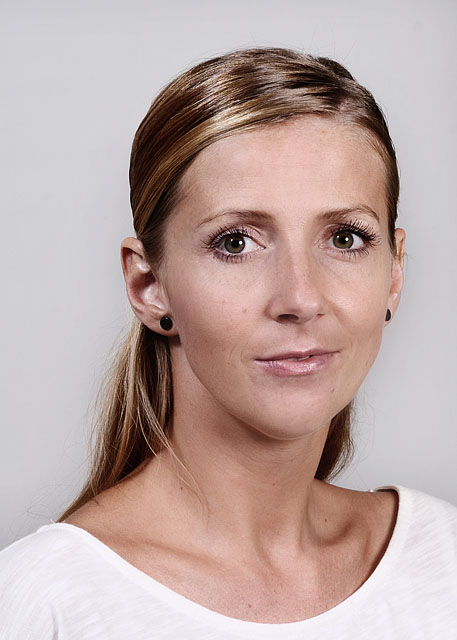"The biggest challenge, doing research with hard-to-employ groups, is to acquire their trust"

An interview with Lucia Bosáková, Community and Health Research Network (CoHeReNT)
Lucia Bosáková is PhD in Economics and Vice-Dean at the Faculty of Business Economy in Košice. She is involved in SOPHIE as senior researcher in the Community and Health Research Network (CoHeReNT) at the Department of Health Psychology of the PJ Šafárik University in Košice. Also, she co-leads the work package on participation and knowledge transfer.
You have experienced a rapid transition from research on economics to health inequalities. What was the most difficult to adapt to? What do you think economics can bring to this field?
In fact, it has not been a dramatic change, as I had already dealt with "health research" during my PhD when the focus of my research was health economics with an emphasis on efficiency in health care. To understand and perform economic analyses in health care, it is also required to have certain knowledge about health and health inequalities. In that period I met Prof. Andrea Madarasova Geckova who became my consultant in this area and latterly, who proposed me to establish a collaboration. So, the transition into her team and to "health inequalities" was pretty smooth. Perhaps the biggest challenge of this change was the qualitative research approach and the understanding that "not everything is just about numbers". On the other hand what I really like about this move is that I have started to work in a really multidisciplinary collective (psychologists, physicians, anthropologist, social worker, economists etc.) what enables me to learn every day something new. Regarding to the economics contribution, we like it or not, economics is very closely linked to health and health inequalities. So, the understanding of its principles may help to clarify and explain some phenomena as well as to find possible solutions.
You are the author of the recent report "A Bottom-up Approach to Employment: An Example of Good Practice" (WHO, 2013). Which aspects of this good practice would you highlight and could be used in other countries?
The Bottom-up Approach, carried out within the Equality of Opportunity project created by U. S. Steel Košice, is unique and an unusually sensitive attempt to address Roma social inequalities and their consequences in our region. Its success consists in trying to look at the problem in a broader context: it is not only about job opportunities, in addition, it focuses on children's development and quality of life within the community, with emphasis on the cascade-like and counter-value principles, motivation, personal contact, active involvement of participants and community specificity. Moreover, there are other features of this approach, such as the alliance between multi-sector stakeholders and the respect to the specifics of Roma history, which seem to have had an impact on the project's sustainability and success.
What has been the main challenge of making research with hard-to-employ groups?
I consider that the biggest challenge, in the context of doing research with hard-to-employ groups, has been to acquire their trust. Many of them got tired of many studies that have been usually made "about them but without them" and without bringing to them any benefit or chance of change. Therefore we always try to be very open, honest and fair, and we only promise what we can really fulfil.
What did you learn with this study about stakeholders' participation and results dissemination?
I learned that stakeholders' participation in research is more difficult than I thought before. It requires a precise preparation and good set-up of logistics. Each group of stakeholders requires specific treatment, though all of them have to be persuaded that their attitudes and experiences are extremely important for the research. Dissemination of results represents another challenge. In Slovakia (and I also assume in other countries) mass media are very influential in opinion-forming, but getting there some space is very difficult as they usually gasp only for "bloody sensations". Besides, sometimes is also quite difficult for us to "translate" research findings into comprehensible language.
How do you see the development of research in Central European countries like Slovakia?It often seems that research is not a priority in our country. Despite the fact that the situation in Slovakia in recent years has significantly changed, in my opinion the "brain drain" is still a persisting problem. The main reason for the departure of scientists is probably the search of stimulating environments for research. The problem of Slovak research seems to be on one hand the lack of funding and on the other hand the wrong approach to create conditions for science. However, I think this negative trend has started to change. So we need to be patient, work hard and keep on in persuading our government and society about the importance of science.
